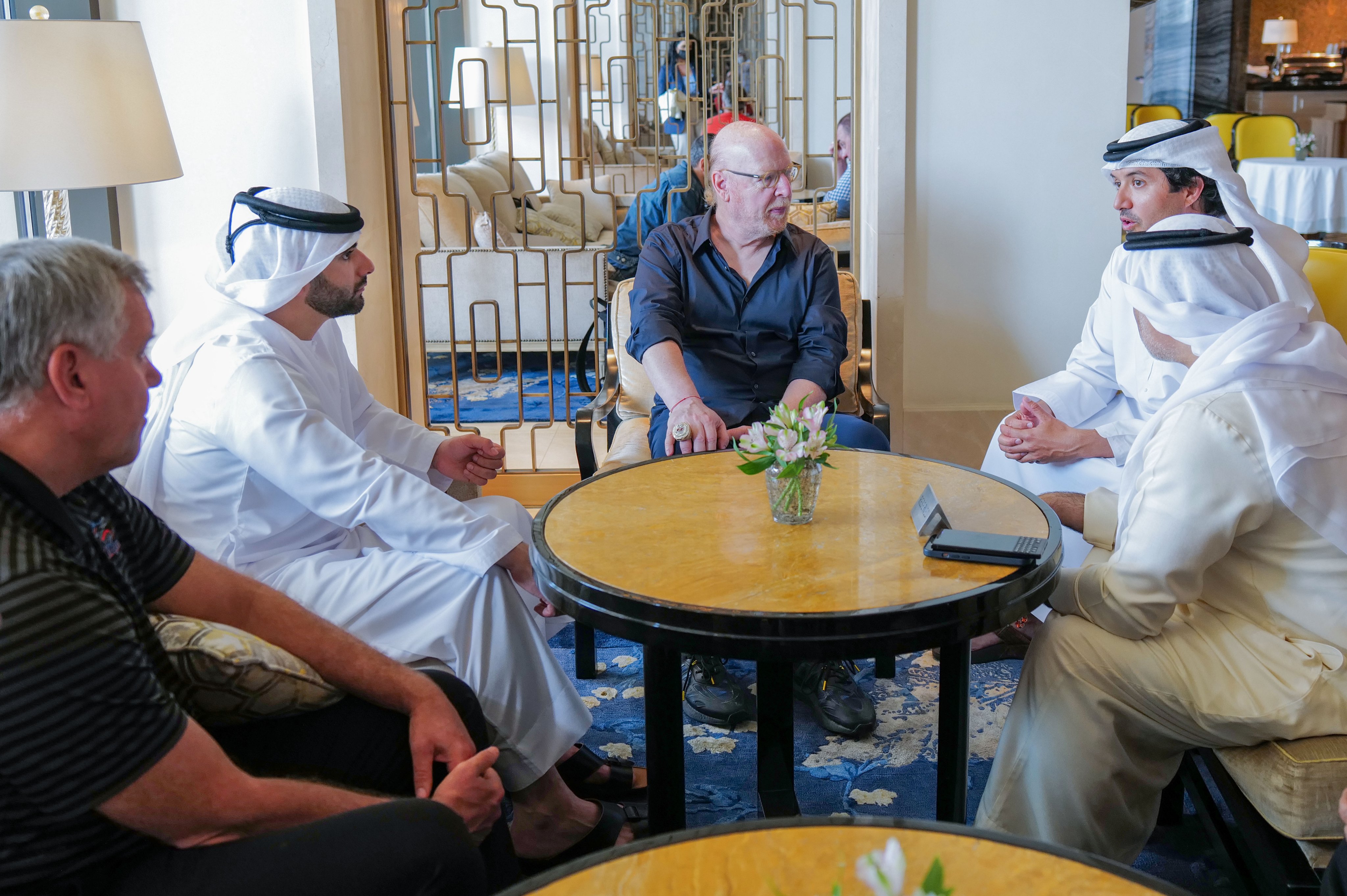
In the already mysterious Arab world, Sheikh Jassim bin Hamad Al Thani is an even more enigmatic figure. The recent emergence of Sheikh Jassim as a potential buyer for Manchester United (MU) has left many wondering about his background and the forces behind him. Until he sent an official offer to buy MU, no one had ever heard of Sheikh Jassim bin Hamad Al Thani. The offer itself is a substantial one, rumored to be £4.5 billion ($5.4 billion) for a 100% stake in the club, with the possibility of increasing the amount if necessary. Sheikh Jassim has also expressed his intention to pay off the club’s debts and undertake extensive efforts to restore the Red Devils to their former glory. This includes plans to renovate or even rebuild Old Trafford, revamp the training ground, and invest in various other aspects of the club.
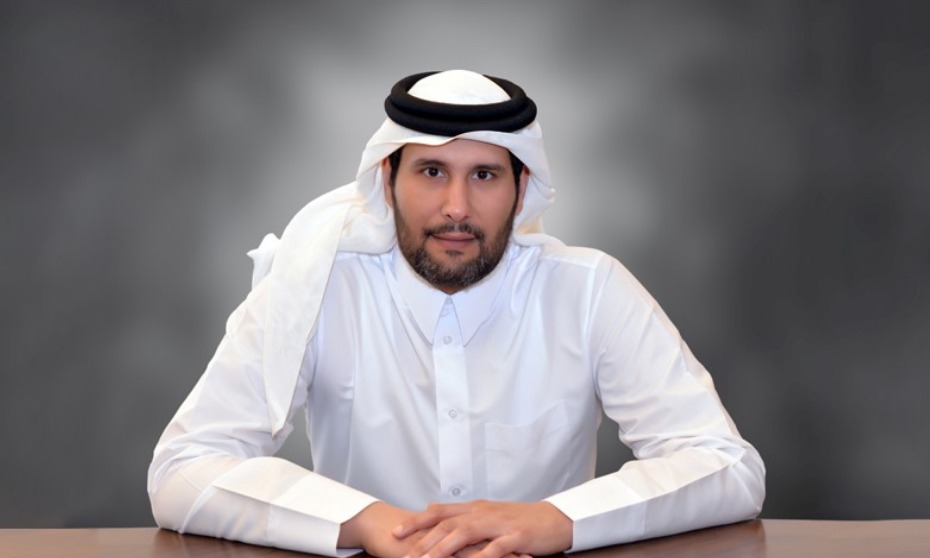
But who is Sheikh Jassim, after all? Born in 1982, he achieved the position of President of the Qatar Islamic Bank (QIB) at the young age of 20, shortly after graduating from the prestigious Royal Military Academy of the United Kingdom at Sandhurst. He also served as a Director of Credit Suisse Group and held positions on the boards of numerous Qatari companies. Sheikh Jassim is known to be a dedicated fan of Manchester United, and the funds for acquiring the club come from a non-profit organization he founded called the Nine Two Foundation – 1992. The foundation’s name pays tribute to the year Sheikh Jassim’s love affair with the Red Devils began, coinciding with the renowned “Class of ’92,” which included iconic players such as Ryan Giggs, David Beckham, Paul Scholes, and the Neville brothers.
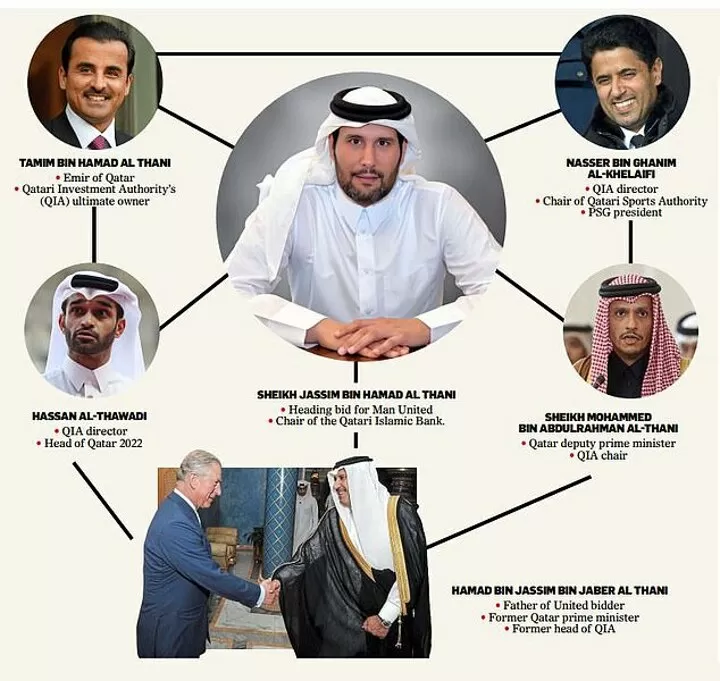
Naturally, questions arise about the source of Sheikh Jassim’s wealth. While he held the position of Chairman at a medium-sized bank by global standards, the ambitious plan to acquire and rebuild MU seemed to demand unlimited financial resources. So, where is the money coming from? It is essential to note that Sheikh Jassim is the son of Sheikh Hamad bin Jassim bin Jaber Al Thani (referred to as HBJ), the former Prime Minister of Qatar and, at one point, the Deputy Director of the Qatar Investment Authority (QIA). HBJ’s tenure coincided with that of former Emir Sheikh Hamad bin Khalifa Al Thani, who jokingly remarked that if he ran Qatar, then HBJ owned it. While the British may not be familiar with Sheikh Jassim, they are well acquainted with HBJ, known as the “London acquirer” for his investments in valuable properties in the British capital between 2000 and 2013. Some of these properties include the Canary Wharf complex, the prestigious shopping destination Harrods, the Olympic Village, and the Shard building. HBJ was also involved in a scandal last year when it was revealed that he had given Prince Charles a suitcase containing 1 million euros in cash back in 2015.
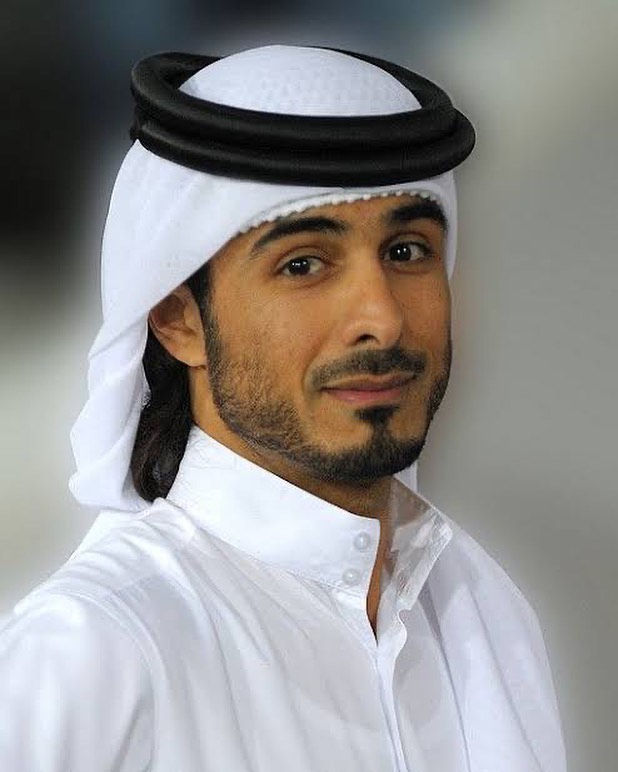
In 2013, HBJ stepped away from politics shortly after Sheikh Hamad abdicated in favor of his son, Sheikh Tamim, the current Emir of Qatar, who famously presented Lionel Messi with a cape during the 2022 World Cup coronation ceremony. HBJ’s decision to relinquish power was motivated by a desire to avoid becoming an obstacle to the country’s leadership, and he voluntarily reduced his influence in various areas. This included stepping down from his role in QIA and selling his stake in Qatar Airways (almost 50%) back to the government. HBJ also delegated executive powers to his son Sheikh Jassim, appointing him to various boards of different companies, including QIB. It is worth mentioning that QIA is the largest shareholder of QIB, holding a 17.7% stake.
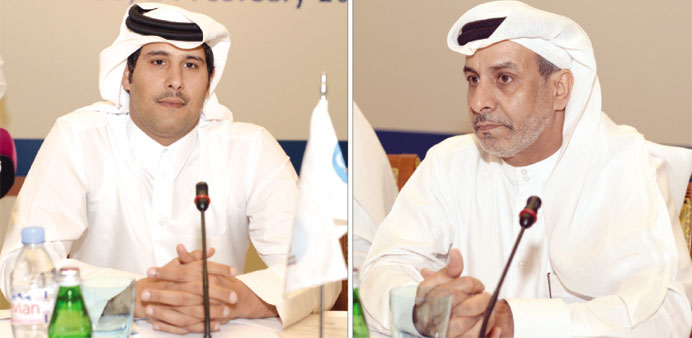
According to figures from the Sunday Times, Sheikh Jassim’s personal fortune is estimated to be around £2 billion, while his father HBJ possesses no less than £20 billion. However, these figures may not capture the full extent of their actual assets. Importantly, the funds for acquiring MU are unlikely to come from their personal wealth alone. The Qatar Royal Family, known for actively using sports to promote the country’s image and increase its soft power globally, stands behind this endeavor. Sheikh Jassim, as a member of the Al Thani Royal lineage (though not in close proximity to Emir Sheikh Tamim), is an ideal representative for the MU acquisition. This allows him to avoid direct contact with the Qatar Sports Authority (QSA), which owns Paris Saint-Germain (PSG), thereby circumventing the UEFA rule that prohibits a group of owners from directly or indirectly controlling more than one football team.

Professor Simon Chadwick, an expert in sports economics and geopolitics at SKEMA Business School, shared his insights with The Athletic, stating, “There are about 3,000 members of the club, with a small percentage of them being close to the Emir within the Qatari royal family. However, in Gulf culture, family ties run deep, and if someone is assigned a task, they willingly comply. Moreover, it offers the opportunity to climb the hierarchy and get closer to the apex of power.”
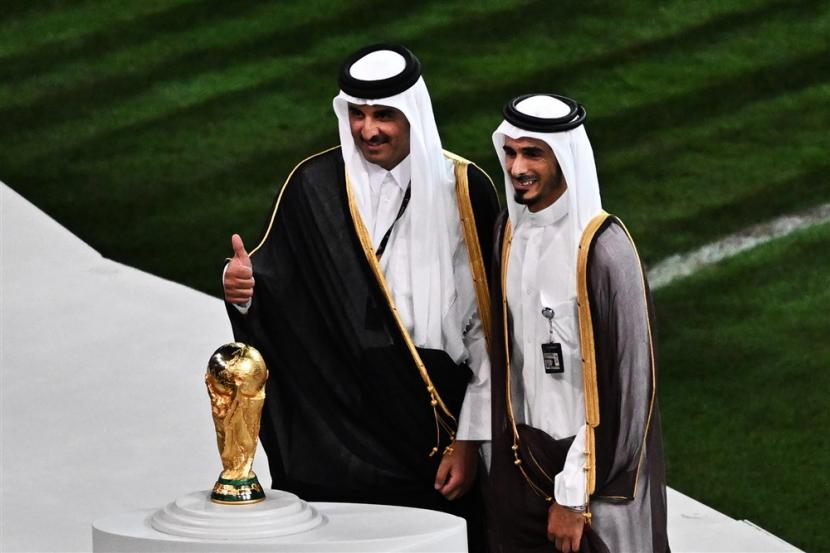
According to reports from The Telegraph, Qatar is fully confident that Sheikh Jassim and QIB will meet all the requirements of UK regulations and UEFA, and they firmly believe that their bid package is strong enough to outshine competitors and successfully complete the acquisition of Manchester United. It is worth noting that, similar to Sheikh Jassim, Emir Sheikh Tamim is also a passionate supporter of the 20-time British champion team.
In conclusion, Sheikh Jassim bin Hamad Al Thani’s sudden emergence as a potential buyer for Manchester United has sparked intrigue and curiosity. As a dedicated fan of the club and the son of HBJ, the former Prime Minister of Qatar, Sheikh Jassim’s association with the Qatar Royal Family adds weight to his bid. While the acquisition may appear financially ambitious, the backing of the Qatar Royal Family and their commitment to utilizing sports as a means to enhance the country’s global standing suggests that Sheikh Jassim’s offer is backed by substantial resources. As the saga unfolds, football enthusiasts and Manchester United fans around the world eagerly await the outcome of this enigmatic acquisition.
